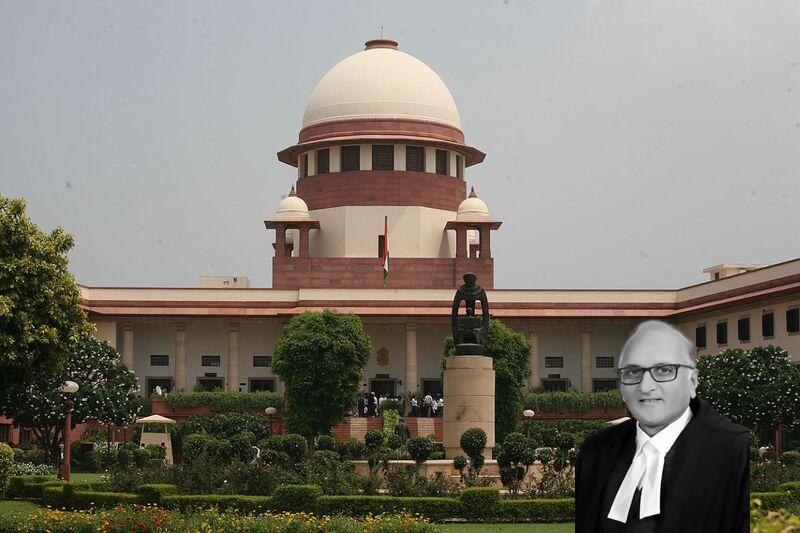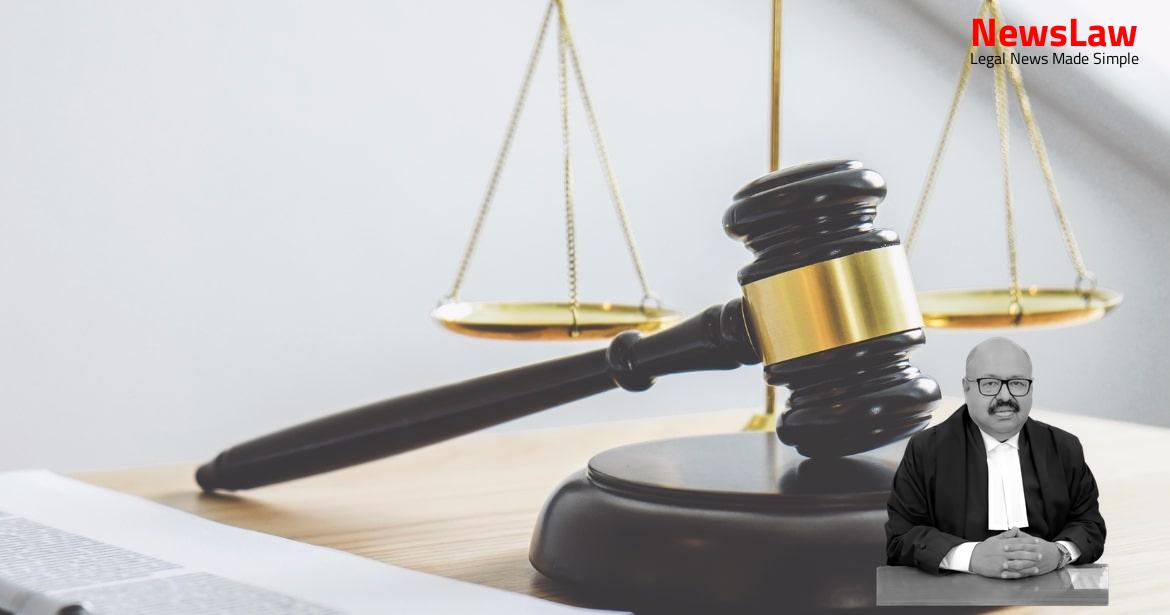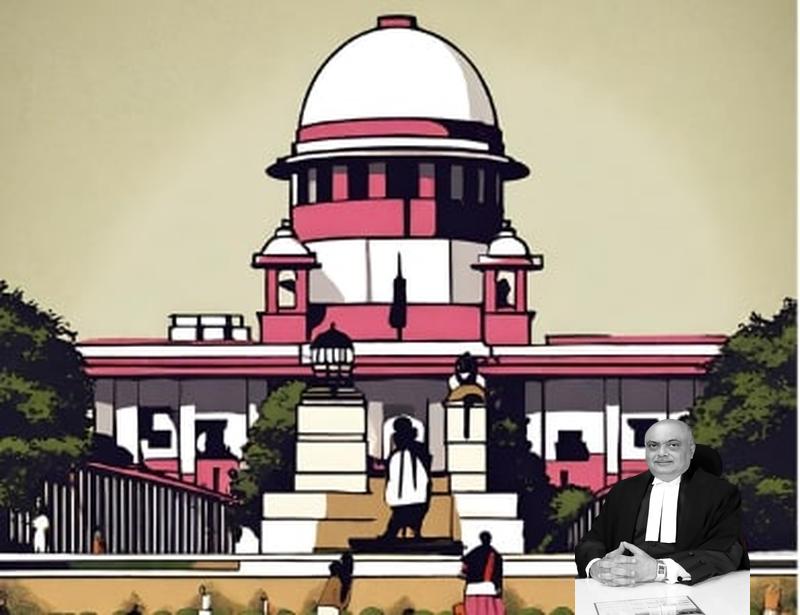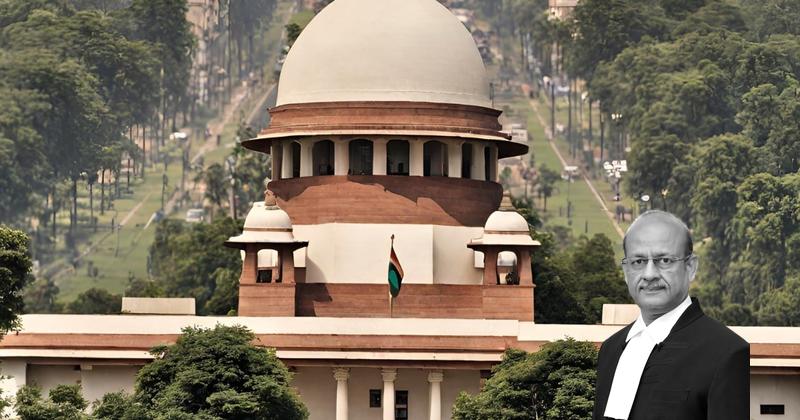Eventually on 29.04.2021, 2 it was agreed that two dispute heads (claim 2(b) to 2(d)) and the Chennai Metro’s counter claim would be referred to a three-member tribunal under the Arbitration and Conciliation Act, 1996 (hereafter “the Act”). The tribunal in the present case on 13.04.2022 decided that suspension of its proceedings due to the pendency of the appeal, to await the outcome of the Division Bench was not in the larger interest of justice and proceeded with other part of the claim which was pending before it. According to Chennai Metro, the issue of 3 fees was not taken up; yet in the minutes of these proceedings issued on 24.07.2022, the tribunal reiterated its stand about entitlement of revised fee. Afcons, by its e-mail dated 28.07.2022 informed Chennai Metro that it had paid the revised fee for five hearings (i.e, for 10 to 14 virtual hearings).
On 15.09.2022, all three members of the tribunal filed affidavits, in response to the Section 14 petition acknowledging that this court’s judgment in ONGC v. It was urged that this court ruled that any deviation from the original terms, [which are in the form of a tripartite arrangement, between the parties and the tribunal], mean that any amendments or modifications can only be with the consent of all the parties; it cannot be unilateral. Bajpai vs Union of India, State of Punjab vs Devenderpal Singh Bhuller and Supreme Court Advocates on record Association vs Union of India, to elaborate the various forms or heads of bias. It was argued that the impugned judgment is in error in as much as accepted its face value of the affidavits and the statements contained in it of the members of the tribunal, [who stated that no prejudice would be caused, and that they would conduct the proceedings impartially]. 6 This conduct and the persistence of the members of the tribunal to insist that the higher fee should be paid – and for the past period too, would lead any reasonable man to conclude that there was bias or real likelihood of bias and that the tribunal would not conduct its proceedings in an impartial manner. United Telecoms Ltd (hereafter “Bharat Broad Band” ) to the extent that the application under Section 14 is not maintainable unless the party applies to the Tribunal in the first instance, are inapplicable. It was submitted that the application under Section 14 was not maintainable; counsel joined issue with the ASG on the applicability of Section 14.
If the circumstances fall within those enumerated 19 items [in the seventh schedule] the party aggrieved can directly approach the court under Section 14; whereas this is not so in other cases. Learned Senior Counsel relied upon the observations of this court in HRD (supra), which he said categorically held that Section 12(5) read with the Seventh Schedule, render the arbitrator ineligible and that in such event it is de jure unable to perform its functions under Section 14(1)(a). Learned counsel stated that on this premise, having regard to the past conduct of Chennai Metro in paying the revised fee, Afcons informed Chennai Metro by an e-mail dated 28.07.2022 that they had paid the revised fee in the present case. The relevant provisions of the Act, after its amendments in 2015 and 2019, read as follows: “12. Explanation 2.—The disclosure shall be made by such person in the form specified in the Sixth Schedule.] (3) An arbitrator may be challenged only if — (a) circumstances exist that give rise to justifiable doubts as to his independence or impartiality, or (b) he does not possess the qualifications agreed to by the parties. (2) Failing any agreement referred to in sub-section (1), a party who intends to challenge an arbitrator shall, within fifteen days after becoming aware of the constitution of the arbitral tribunal or after becoming aware of any circumstances referred to in sub-section(3) of section 12, send a written statement of the reasons for the challenge to the arbitral tribunal. (3) If, under this section or sub-section (3) of section 13, an arbitrator withdraws from his office or a party agrees to the termination of the mandate of an arbitrator, it shall not imply acceptance of the validity of any ground referred to in this section or sub-section(3) of section 12. (2) Where the mandate of an arbitrator terminates, a substitute arbitrator shall be appointed according to the rules that were applicable to the appointment of the arbitrator being replaced.
The Court must look at the impression which other people have.” Later, in Kumaon Vikas Mandal v Girija Shankar Pant (hereafter, “Kumaon Vikas Mandal”) the court while agreeing with the position taken in Parthasarathi (supra) relied on below observations of this court in Parthasarathi (supra): “If right-minded persons would think that there is real likelihood of bias on the part of an inquiring officer, he must not conduct the inquiry; nevertheless, there must be a real likelihood of bias. [..] As to the tests of the likelihood of bias what is relevant is the reasonableness of the apprehension in that regard in the mind of the party. The court reviewed the jurisprudence, and several previous precedents, and in Kumaon Vikas Mandal (supra) observed that: “The test, therefore, is as to whether a mere apprehension of bias or there being a real danger of bias and it is on this score that the surrounding circumstances must and ought to be collated and necessary conclusion drawn therefrom–in the event however the conclusion is otherwise inescapable that there is existing a real danger of bias…” 21.
The second explanation to Section 12(1) requires disclosure in the form set out in the Sixth Schedule. By Section 13(2), if there is no agreement, the party who intends to challenge the arbitrator has to within 15 days after becoming aware of the tribunal’s constitution or within fifteen days after becoming aware of any circumstances referred to in Section 12(3) apply in writing to the reasons for challenge to a tribunal. Section 14 deals with the contingency of failure or impossibility of the arbitrator or tribunal to act and stipulates that the mandate of an arbitrator shall terminate and he shall be substituted by another “if he becomes de jure or de facto unable to perform its functions or for other reasons fails to act without undue delay or withdraws from his office or parties agrees to the termination of his mandate”. Delhi Metro Rail Corporation Ltd., where taking note of the amendment made to the Act in 2015, the Court underlined that it was with the objective to induce neutrality of arbitrators especially their independence and impartiality that the amendment act of 2015 was introduced. The Red List, consisting of non-waivable and waivable guidelines, covers situations which are “more serious” and “serious”, the “more serious” objections being non- 15 waivable.
The only reason that these items also appear in the Fifth Schedule is for purposes of disclosure by the arbitrator, as unless the proposed arbitrator discloses in writing his involvement in terms of Items 1 to 34 of the Fifth Schedule, such disclosure would be lacking, in which case the parties would be put at a disadvantage as such information is often within the personal knowledge of the arbitrator only. However, to accede to Shri Divan’s submission that because the grounds for challenge have been narrowed as aforesaid, we must construe the items in the Fifth and Seventh Schedules in the most expansive manner, so that the remotest likelihood of bias gets removed, is not an acceptable way of interpreting the Schedules. In such circumstances outlined in Section 12(5), the party aggrieved could directly approach the court under Section 14(1)(a). The ineligibility which attaches to the appointment is the first category: it is contained in Section 12(1) read with the explanation and the Fifth Schedule to the Act.
As clarified in HRD (supra), the grounds of ineligibility which would apply at the appointment stage, would also continue during the proceedings by virtue of Section 12(2). In case of ineligibility which goes the root of the appointment – and this is the consequence of the introduction of Section 12(5) [which is in emphatic terms and overrides other previous agreements], the arbitrator’s relationship with the parties or counsel or the subject matter of the dispute or the existence of any of the categories of the Seventh Schedule (which are 19 specific enumerated grounds) render that tribunal ineligible to even continue. The analysis in HRD (supra), and the subsequent decision in Bharat Broad Band (supra), therefore are clear enunciations of law in that any legal disability which attaches on the grounds enumerated in the Fifth Schedule [or any other circumstance, given the terminology of Section 12 (3) which is not restricted to fifth schedule ineligibility], the aggrieved party has to first apply before the tribunal as a matter of law.
In the present case, this court is conscious of the fact that ONGC (supra) is the authority for the proposition that the issue of fixation of fee, is contractual, and wherever there is no prior arrangement or court order, the tribunal has to fix it at the threshold. However, if the arbitral tribunal 19 considers that the fee stipulated in the arbitration agreement is unacceptable, the fee proposed by the arbitral tribunal must be indicated with clarity in the course of the preliminary hearings in accordance with these directives. The parties and the arbitral tribunal may make a carve out in the Terms of Reference during the preliminary hearings that the fee fixed therein may be revised upon completion of a specific number of sittings. The ruling in ONGC (supra) is undoubtedly clear that fee increase can be resorted to only with the agreement of parties; in the event of disagreement by one party, the tribunal has to continue with the previous arrangement, or decline to act as arbitrator.
The other case, where this court noted that a fee increase was sought and was warranted, because of revision of fee in a schedule referred to for the purpose of ascertaining fee, 20 became the focus of dispute. We, therefore, hold that the fee Schedule that is contained in the Circular dated 01.06.2017, substituting the earlier fee schedule, will now operate and the arbitrators will be entitled to charge their fees in accordance with this Schedule and not in accordance with the Fourth Schedule to the Arbitration Act. In a recent decision of the UK Supreme Court, in Halliburton Company v Chubb Bermuda Insurance Ltd., (hereafter, “Halliburton”) it was held, that 21 arbitrators were under a duty of disclosure under the English law.
One way of satisfying the parties as to an arbitrator’s impartiality is disclosure.



